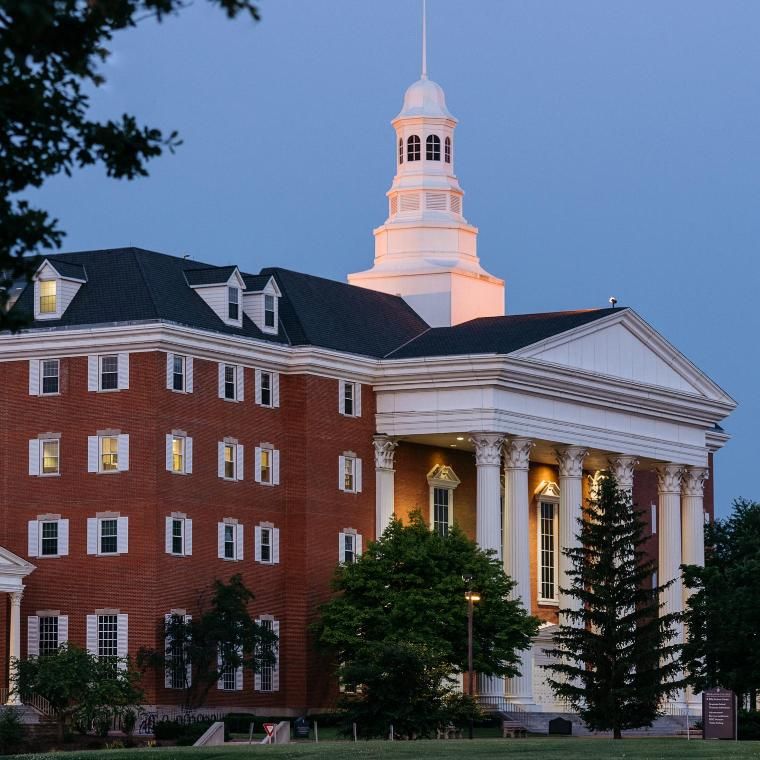M.A. or M.Div.? Five questions to ask when choosing your next degree.
Considering advanced study in biblical and/or theological studies, but struggling to discern whether an M.Div. or an M.A. is more appropriate for you? Here are five important questions I suggest students ask when discerning between an M.Div. and the Wheaton College Graduate School’s M.A. programs in the School of Biblical and Theological Studies.
A version of this article by Dr. Marc Cortez previously appeared in Bible Study Magazine.
1. Do I really understand the differences between an M.A. and an M.Div.?
A common misconception in today’s academic market is that M.Div. programs are inherently more “spiritual” or “practical” and that M.A. programs are more “heady” or “academic.” While that may be true in some places, it’s far more often the case that good M.Div. programs will challenge your “head” in ways that can be quite challenging, and good M.A. programs will shape you spiritually in ways you never imagined. In reality, the choice between an M.A. and M.Div. is often much more about your personal and vocational aspirations, and you shouldn’t have to choose between the head and the heart.
A better way to think about the differences is to focus on breadth and depth. A good M.Div. program will give you solid preparation across a broad range of disciplines (e.g. Bible, theology, preaching, counseling, leadership). That prepares you to know at least a little about a lot of different things, and it is precisely what many of us need when entering into ministry. But others have already learned about many of those things, either through their undergraduate work or their ministry experiences, and what they really need is to dig deeply into a particular subject. That’s where an M.A. program excels. While it sacrifices a certain kind of breadth, a good M.A. prepares you to think deeply about an aspect of Christian thought and ministry, allowing you to specialize in a way that is not possible in a broader program.
2. What do God, my family, my friends, and my pastor think?
This one probably goes without saying, but I’ll say it anyway! Graduate study of any kind (seminary, graduate school, divinity school, residential, evenings, online, etc.) will inevitably require significant changes to your life. As with any commitment that places new demands on your time, finances, and attention, it’s important to seek God’s guidance in prayerful consultation with your pastor, trusted peers, and loved ones.
For example, when I decided to go back to school after almost ten years of vocational youth ministry, I initially enrolled in an M.Div. program. That seemed like the obvious choice given that my goals at the time were to continue in vocational ministry. It was really through the counsel of my wife, my pastor, and my co-workers that I began to see that a more focused degree program might be a better fit for my needs and interests. Is that the right approach for everyone? No. But it worked for me, and I only saw that through the advice of those God placed around me.
3. Do I see myself living out my vocation in a ministry setting or an academic setting—or am I called to both?
If your end goal is ordination and pastoral ministry, you will want to explore which degree will best prepare you to serve in your particular denomination. Some denominations require the M.Div. for ordained ministry, which makes your decision easier. In other traditions, though, a targeted program like an M.A. may be your best option! In those traditions, the decision is less about what is required for ordination and more about which programs will help me build on the skills and experiences God has already given me.
If you wish to keep your options open for both ministry and future academic work, you should consider programs whose graduates place well in vocational ministry settings and in top doctoral programs. Wheaton’s M.A. alumni serve as pastors, chaplains, and ministers in a wide variety of contexts, and they pursue doctoral programs at such prestigious institutions as Oxford, Cambridge, Princeton, Harvard, and Duke. For example, M.A. in Biblical Exegesis graduate, Todd Wilson, completed his Ph.D. in New Testament at Cambridge University, and went on to serve both as a Senior Pastor and as cofounder and President of the Center for Pastor Theologians. Todd embodies Wheaton’s legacy of bridging the perceived gaps between ministry and the academy.
4. How much time and money do I want to spend on school?
We often think about the economics of education solely in terms of finances, but time is also very costly—especially when you’re literally paying for it by the credit hour!
As I noted earlier, the strength of the M.Div. lies in its breadth. But that breadth comes with a cost given that an M.Div. can be almost twice as long as an M.A., costing considerably more overall. Here it’s important to factor in the total number of credits when looking at the sticker price of a degree. While the M.A. you’re considering may seem more expensive than an M.Div., what happens when you multiply the per-credit-hour cost by the number of credits in the degree? The tuition for the M.Div. you’re considering could be $130 cheaper per credit hour, but the M.A. may still save you almost $35,000 in the long run!
Additionally, it is worth noting that many schools, including Wheaton, have programs that allow you to complete two M.A. programs in approximately the same time that it takes to complete the M.Div. alone. For example, a full-time student at Wheaton can complete the M.A. in Theology and the M.A. in Biblical Exegesis in a little over three years, which is comparable to the length of many M.Div. programs. That still does not give you the kind of breadth developed in an M.Div., but for students wanting to keep multiple options open, including those who want to be competitive for the best doctoral programs, the combination of two M.A. programs is hard to beat!
5. What do the credentials mean in relation to my bigger view of vocation and Christian living? In other words, why am I pursuing this degree?
Finally, remember that it’s not just about credentials, time, or money. Whichever path you choose, your investment in school should benefit you, your family, your ministry, a (paying) career, and/or further academic work. No two master’s programs are the same, and much of the choice has less to do with the combination of letters than with your unique context, needs, and desires. In other words, find the program where your soul will flourish.
Wheaton is a place where students come from all around the world and the U.S. (Rwanda, Sri Lanka, Chilé, New York, California), from a variety of contexts (full-time pastoral ministry, a straight-through academic journey, long-term careers in business), and for a variety of reasons (ministry preparation, academic growth, service to society, and personal enrichment). An M.A. from the Wheaton College Graduate School’s School of Biblical and Theological Studies is more than letters after your name; it’s participation in a legacy of faithful servant scholarship in service of the church, the academy, and society worldwide. —Marc Cortez, Ph.D.
 About Dr. Marc Cortez
About Dr. Marc Cortez
Marc Cortez is professor of theology at Wheaton College. He is a leading expert in theological anthropology, and has written multiple books on the subject, including the popular textbook, Theological Anthropology: A Guide for the Perplexed. In addition to his theological work, Dr. Cortez serves as a volunteer youth worker for middle and high school ministries, teaching and preaching whenever he gets the chance, and helping develop tomorrow’s Christian leaders.
